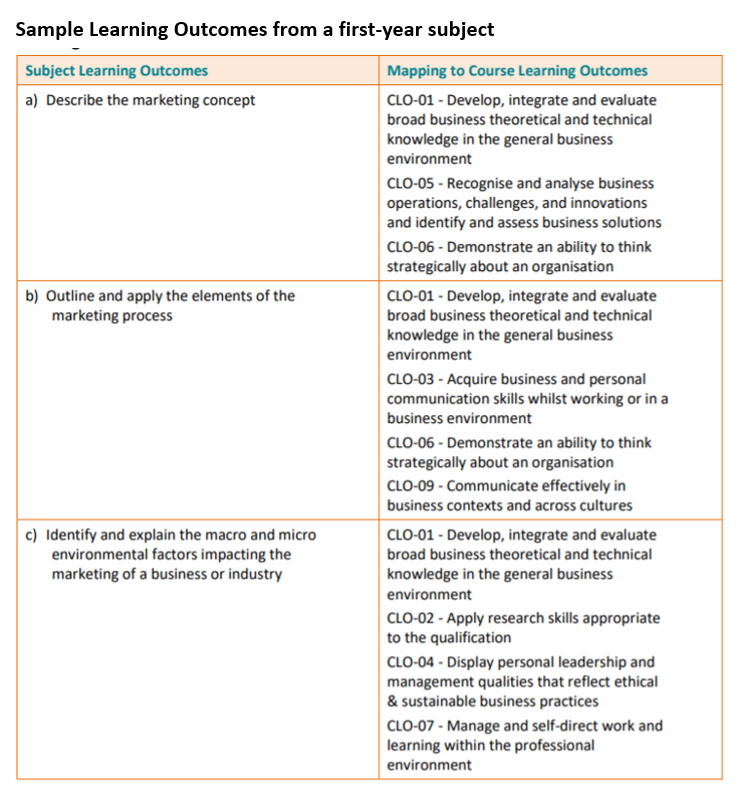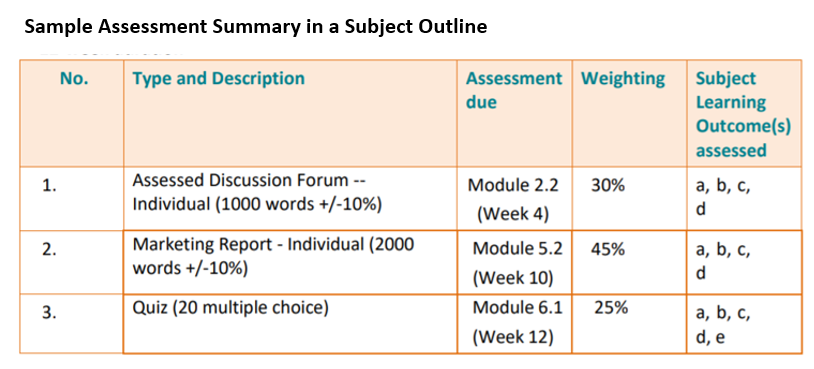Edited by Torrens University Australia for applicability within Australian Higher Education and the use of Australian English.
The subject outline will be available to you through Blackboard. It covers all the important information relating to the subject.
Your learning facilitator will likely discuss the content in the first class, but it is also a good idea to read the subject outline in full, preferably before your first class.
By reading your subject outline actively and critically, you can put yourself in the best position to succeed in the subject. You will give yourself the opportunity to ask for clarification or explanation of what you are expected to accomplish during the subject, and you will give yourself the ability to plan ahead to better facilitate those accomplishments.
Each subject outline will describe the learning outcomes in detail, making it clear what students are expected to learn in the subject. Understanding these objectives will make it possible for you to connect your current knowledge with the subject or to actively build your own understanding of these key points before and during your study.
The following image shows a sample of learning objectives from a first year Marketing subject.

It is always wise to plan ahead, and the subject outline gives you precisely that opportunity. If you can estimate how much time work for a class will take in a given week, you can coordinate with your other classes and responsibilities and plan your time accordingly.
You can also see when your assessments will be due, and take notes of these dates early in your study.

If you find time management challenging, come along to a Study Success workshop on time management early in your studies, and learn about strategies you can use to efficiently use your time and balance study with the rest of your commitments.
Your subject outline will tell you which assessments are graded and how important each assessment is to your grade.
All of your assessments are allotted a percentage of your ultimate grade. This is called the weighting. Attention to the weighting of each assessment gives you a sense of which assessments your learning facilitator thinks are most significant, and allows you to budget the time you give them in accord with their importance.
Below you can see an example assessment overview for a first year Marketing subject. You can see the type of assessment, the weighting of the assessment, the due date as well as how the assessment connects to the Learning Outcomes.

In addition to your subject outline, the assessment area of your Blackboard subject page contains the assessment briefs for the subject.
Each assessment brief provides you with more detailed information about how the specific assessment is graded, such as rubrics for essays or guidelines for presentations.
Treat the assessment brief the same way you do the subject outline—read them closely, actively, and critically. Ask questions and plan ahead.
Your subject outline will contain a list of readings and resources that will be invaluable to you in understanding the content of the subject. Many of these resources are available through the library.
Visit the Torrens University library search page and type the name of the reading into the search box to find out if there are available online copies of the texts.